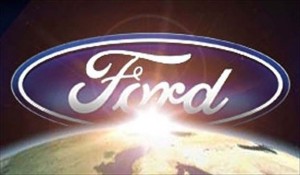Ford Motor Co. says it will shutter its operations in both Japan and Indonesia after years of struggling to crack open a market that has largely rejected foreign brands.
The Detroit automaker plans to shut down its dealerships and end imports of both Ford and Lincoln products, Dave Schoch, the president of Ford’s Asia Pacific region advised employees in an email sent out on Monday.
The move follows the glum conclusion that there is “no reasonable path to profitability,” Schoch stated, adding that, “Unfortunately, this also means that our team members based in Japan and Indonesia will no longer work for Ford Japan or Ford Indonesia following the closures.”
(Ford syncing up with Amazon’s Alexa. Click Here for more on its in-car tech plans.)
Foreign automakers, in general, have had a tough time cracking the Japanese market. All told, their collective share is only barely in the double-digits, and several other manufacturers, including Hyundai, have pulled out in recent years.
Ford was actually an early participant in Japan, though its manufacturing operations there were confiscated during World War II. It returned to the country in 1974 and, beyond setting up its own distribution system, it formed a close relationship with Hiroshima-based Mazda. But former Ford CEO Alan Mulally sold off all but a small holding in the Japanese partner.
Currently, Ford has 52 dealerships in Japan, with 292 employees. It sold just 5,000 vehicles in the country last year, giving it a .15% share of the local market.
Complicating matters, Japanese car sales have been in the doldrums since 1974, a downturn triggered by a hefty tax hike. Industry analysts warn they don’t see a near-term revival of the new car maker.
Ford does plan to retain its minority holdings in Mazda, but it no longer has a significant influence on the Japanese brand’s strategy, nor do the two makers share product development efforts any more.
(After years in the red, Ford finally expects Europe to be back in the black. Click Here for the story.)
As for Indonesia, Ford operates just 44 dealerships and maintains its own staff of 35. Sales fell to 0.6% of the new car market last year, or around 6,000 vehicles. The country’s market is largely dominated by Japanese and local brands.
“In Indonesia, without local manufacturing … there’s just really no way that automakers can compete in that market, and we do not have local manufacturing,” a Ford spokeswoman based in Shanghai told the Reuter’s news service.
Ford isn’t the only Detroit automaker rethinking its presence in Japan and other global markets. General Motors’ Saturn division made a splashy entrance into the Japanese market, only to have to pull out due to declining sales a few years later. Saturn was one of four brands GM dropped as it emerged from bankruptcy in 2009.
More recently, GM pulled its Chevrolet brand out of Europe, deciding to focus on its core, German-based Opel marque. And last year GM decided to abandon the Russian market due to declining sales and weak prospects for the future.
Ford has pared back its own operations there, but CEO Mark Fields this month said the maker has no plans to walk away from the Russian market despite its ongoing sales slump.
(Ford making stop-start standard on F-150 pickups with EcoBoost engines. Click Here for more.)


